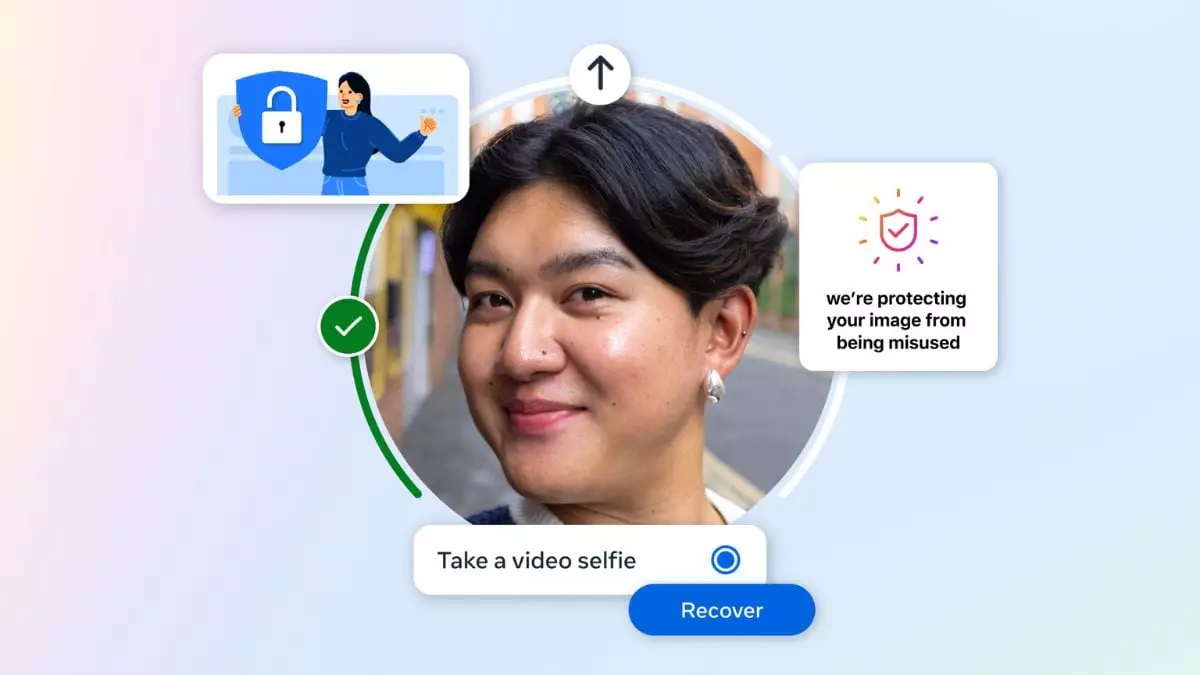On Monday, Meta, the tech behemoth behind Instagram and Facebook, unveiled plans to experiment with facial recognition technology. This initiative has two primary objectives: combating a persistent type of fraud known as “celeb-bait” ad scams and streamlining the account recovery process for users who may find themselves locked out of their accounts. While these measures are aimed at enhancing user safety and experience, they also raise critical questions concerning privacy, data security, and the ethical implications of deploying advanced technology in social media platforms.
Celeb-bait ad scams have become a troublesome issue for platforms like Facebook and Instagram. In these scams, unscrupulous actors exploit the images of popular celebrities to generate deceptive ads that lure unsuspecting users into clicking on them. Once users interact with these ads, they may be directed to malicious websites or engage in fraudulent activities, often under the guise of a trustworthy figure. Meta’s recognition of this serious problem indicates that the company is willing to take proactive steps to purify its digital spaces.
Utilizing facial recognition technology to identify these scams is a significant evolution from Meta’s existing automated ad review system, which already utilizes machine learning algorithms to scrutinize millions of advertisements. This new layer of facial recognition aims to cross-verify images used in ads against public figures’ profile pictures available on Facebook and Instagram. If a match is detected and deemed fraudulent, the ad can be promptly blocked. This method marks a critical shift towards a more automated and precise approach in monitoring digital advertisements, potentially reducing the number of such scams that penetrate the platform.
Beyond combating scams, Meta’s exploration of facial recognition serves another vital purpose: expediting account recovery. Many users encounter frustrating experiences when attempting to regain access to locked accounts, often due to mistaken identity flags or security alerts triggered by suspicious activities. Previously, the only option for verifying identity involved submitting government-issued IDs, a process that can be tedious and time-consuming.
In contrast, Meta’s new approach allows for quicker verification through the use of video selfies. By inviting users to upload these video selfies, the company can match facial data against the profile pictures already on file, thus enabling quicker account recovery. This innovation not only promises speed but also convenience for users who might be locked out due to forgotten passwords or compromised accounts. However, as with any technology that deals with personal imagery, concerns about misuse and data storage linger heavily. Meta has assured users that no facial data will be retained after the identification process, but transparency and trust remain pivotal in this area.
The Implications of Meta’s Strategy
While the introduction of facial recognition technology heralds a new era of user protection and streamlined experiences on Meta’s platforms, its implications are multifaceted. On one side, the measures could significantly reduce the prevalence of scams, enhancing the overall safety of users in the digital space. On the other, it opens the door to discussions about privacy concerns, profiling, and the ethical use of biometric data. Public figures set to enroll in the new system will have the option to opt out, which raises questions about consent and individual agency regarding biometric technology.
Additionally, as the technology is still in its preliminary testing phase, its long-term efficacy and effectiveness remain to be seen. Meta is currently focusing on a select group of celebrities to optimize their systems. As they expand this initiative – potentially rolling out these measures to a broader audience – public scrutiny will likely intensify.
Meta’s attempts to integrate facial recognition technology to tackle both ad scams and account recovery present an interesting case study of innovation at the intersection of user experience, security, and ethics. While ambitious, these initiatives must be implemented with vigilant oversight and clear communication about privacy practices. Ultimately, as Meta seeks to create a safer online environment, the balance between leveraging technological advancements and maintaining user trust will be crucial for its success. As society grapples with these advancements, users must remain informed and proactive about their digital safety and rights.



Leave a Reply